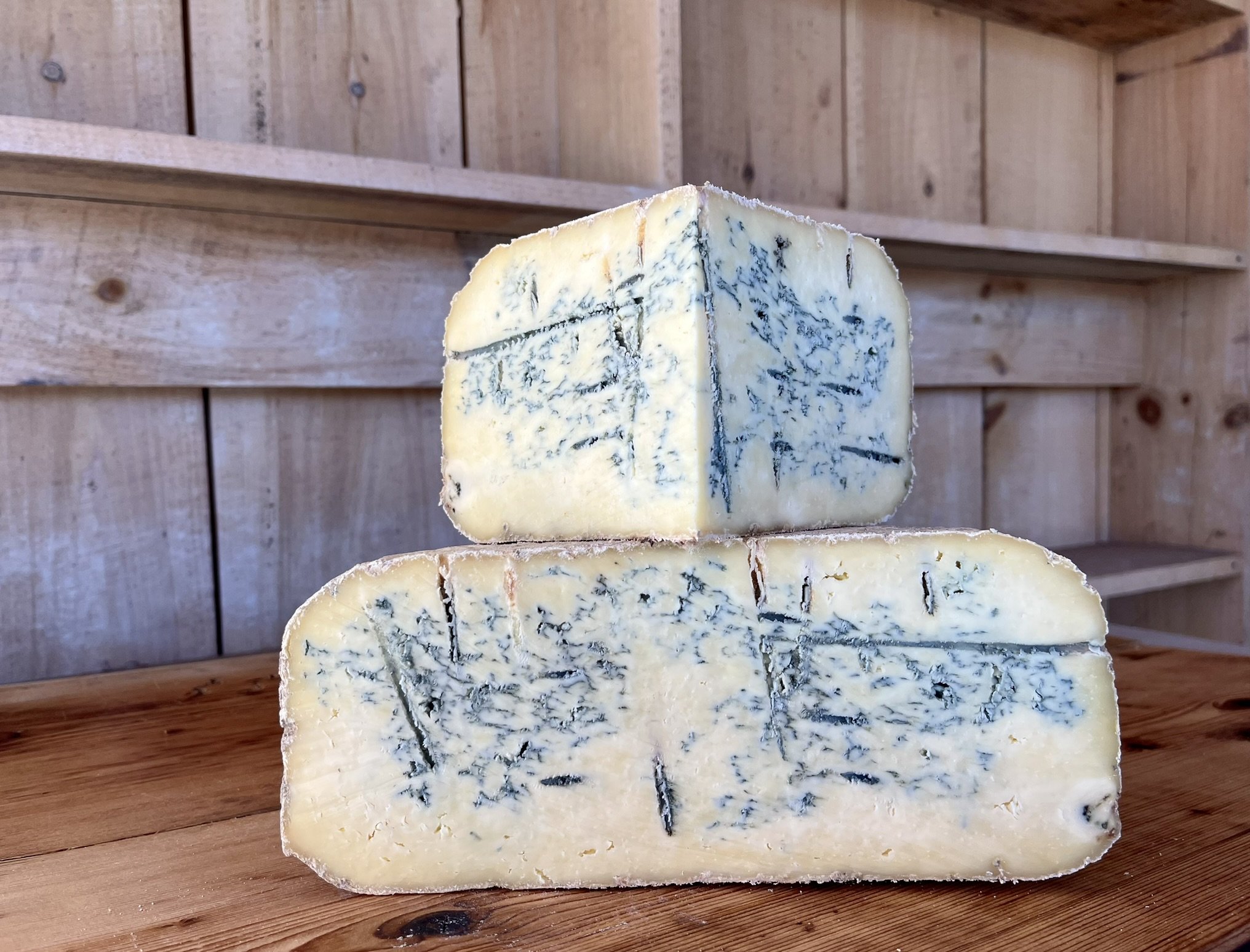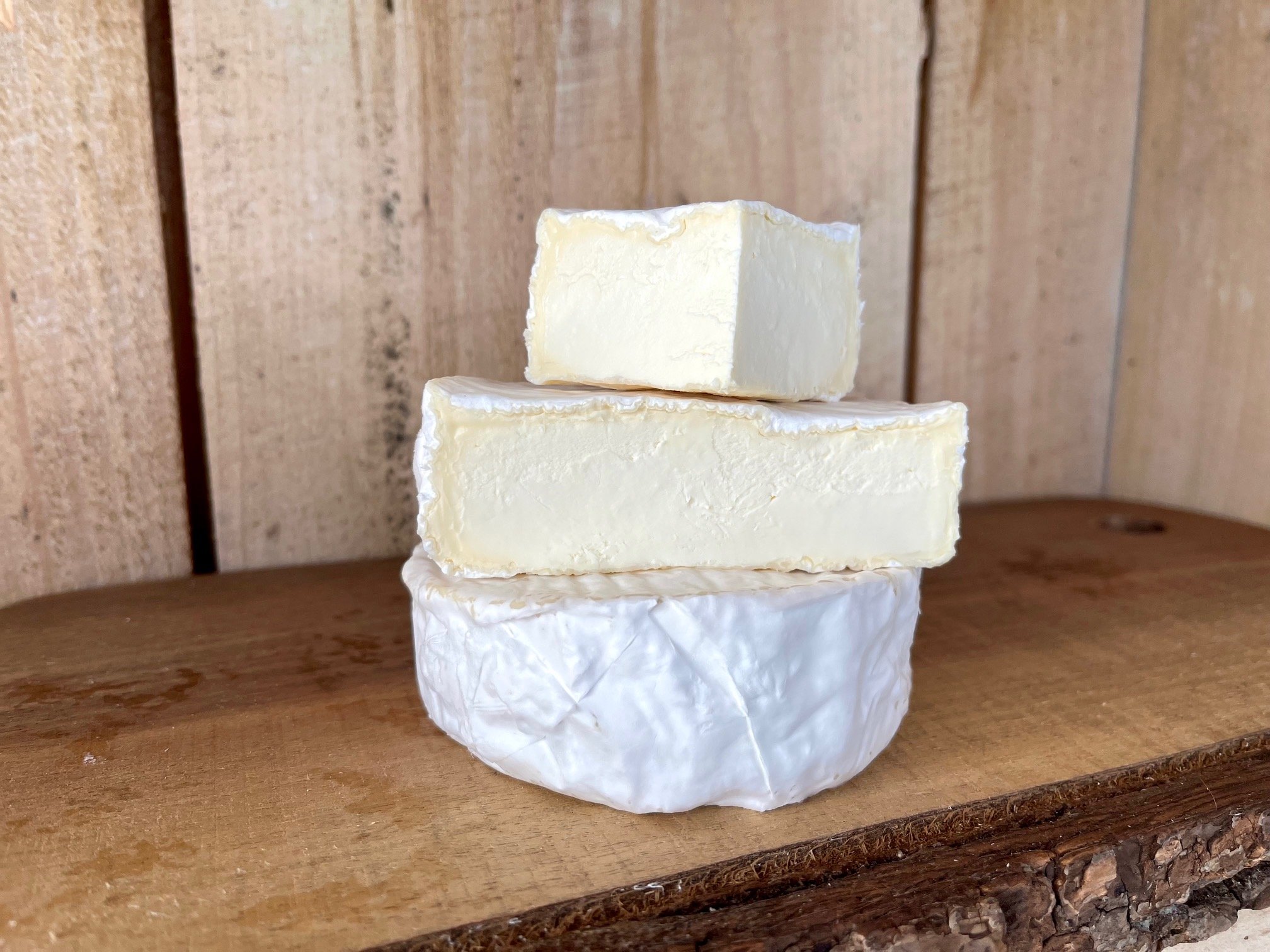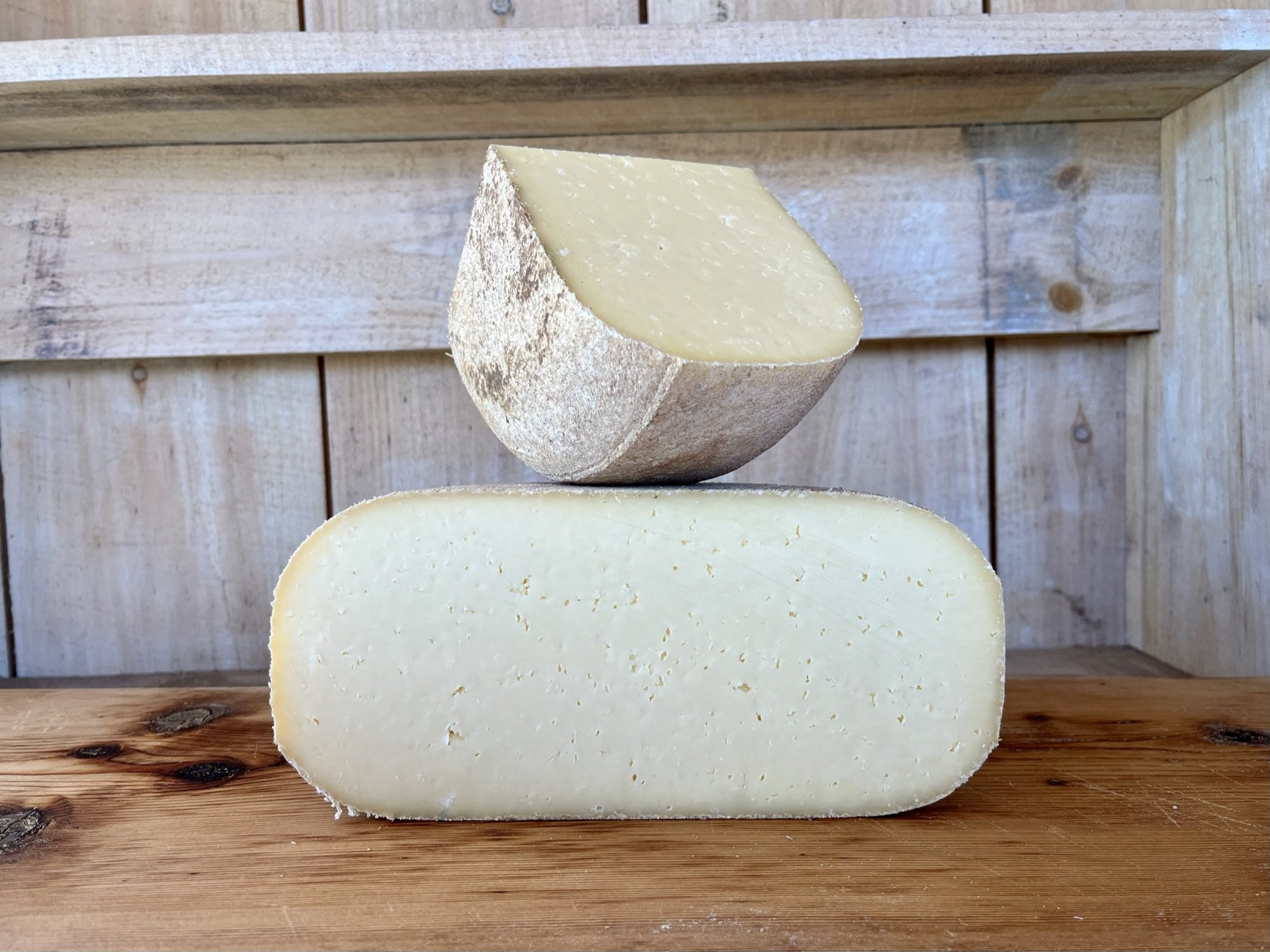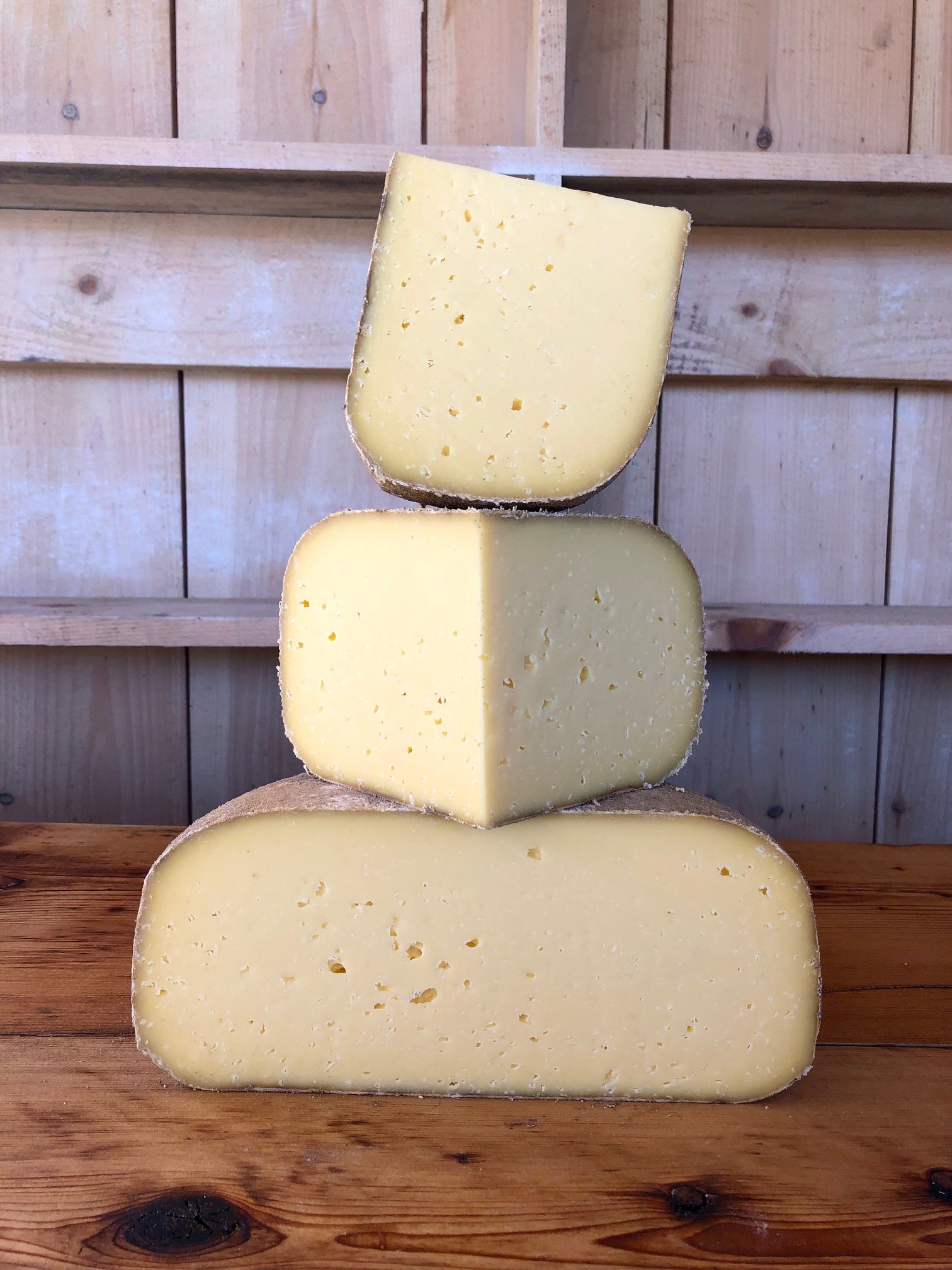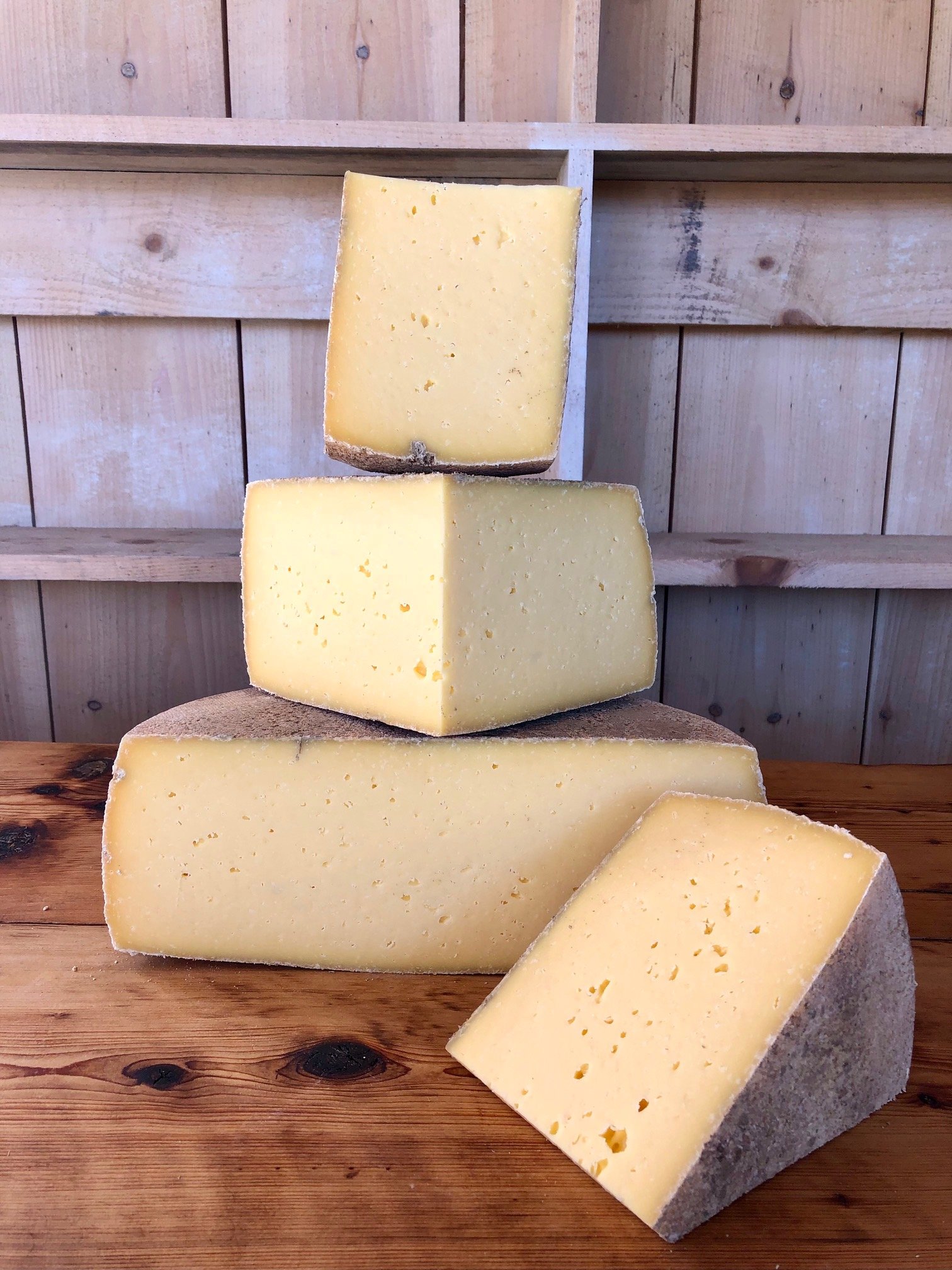About our Cheese
We make all of our cheese by hand with raw milk from our 50 cows, mostly Jerseys, on our small Connecticut farm. We never use growth hormones, sub-therapeutic antibiotics, or animal-based feeds, and our cows graze freely so that they have happy lives with a rich diet of fresh pasture grasses, local hay, and a small amount of grain. All the rinds are natural - the surface molds and yeasts that grow on them help to develop the full flavor of the cheese. We do not recommend eating the rinds of our aged cheeses as they can be bitter and they can include higher levels of mold and bacteria than the interior of the cheese. We age and care for the cheese in our underground cave, ripening all varieties to their peak of flavor.
We sometimes buy milk from a local dairy farm for our pasteurized cheeses. We began purchasing milk in 2022 from Sweet Grass Creamery in Preston, CT to use exclusively in our pasteurized cheese line. Sweet Grass prides themselves on their Jersey milk and sustainable and humane practices - it was important to us to purchase milk from a farm that matches our ideals and high standards for milk. By purchasing milk we are supporting fellow farmers and sustaining Connecticut agriculture. Our pasteurized cheese line is our newest addition to our line up and focuses more on styles of cheese we could not make before using raw milk! These cheeses are younger and softer in nature such as bloomy rinds, mozzarella styles and feta. In recent months, we have had a lot of our own milk - and Sweet Grass has not had any extra to sell - so we’ve been making cheese entirely from milk from our own cows.
Meet the Cheeses
“World-class... some are wonderfully spicy and pungent. All it takes is one bite of their most popular offering, the Belgian-inspired Bridgid’s Abbey, and you’ll swear off bland, pasteurized cheese forever.”

